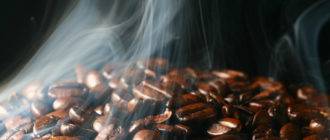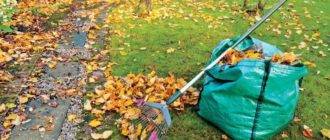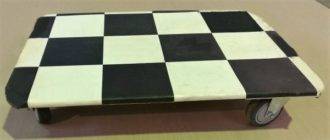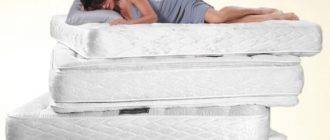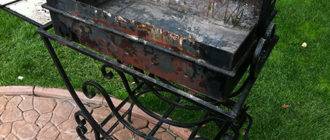First go around and inspect the house from the outside. Pay particular attention to the roof - the roofing material must be in good condition, but if there are leaks, be sure to eliminate them right now. At the same time, see if there is a wasp nest in the attic. If you find it, it's time to get rid of it, while the wasps are lethargic and sleepy. You can use dichlorvos, but there is a much less "fragrant" way - treat the nest with WD-40 - believe me, it works great.
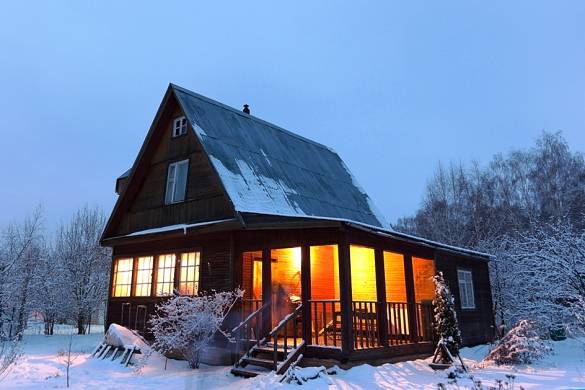
Look into the gutters - there should be no small branches and fallen leaves. Examine the canopies and canopies to see if they can withstand the heavy enough snow that has fallen. When in doubt, take them off altogether.
If in winter you will not come to the cottage, close the windows with wooden shields, so you will save the glass from sudden gusts of wind. At the same time, take a look at the glass - the gaps between the frames must be sealed, otherwise condensation may form, which will lead to the appearance of fungus.
Now you can go into the house and think about how to prepare it inside for wintering. Be sure to do wet cleaning, throw away all unnecessary. Wash and iron all textiles - curtains, bedspreads, tablecloths, and so on. Then all this needs to be put in a closet, shifting with moth tablets and silica gel bags (you find them in boxes when you buy new shoes, so do not throw them away). Put all dishes in a cabinet with doors.
Inspect food stocks. All that remains for the winter, put in tightly closed containers, preferably glass or metal. This is necessary to protect against mice. Of course, you can arrange mousetraps and decompose the poison, but just imagine what smell by spring will be in the house from a triggered mousetrap. Better make sure that the mice do not have access to food, and spread strong-smelling herbs around the house - mint, wormwood, lemon balm, and so on.
Cover upholstered furniture with something, for example, spunbond or just a cloth, so it will become less dusty. Liberally lubricate all locks and door hinges. For those locks that are on the street, make a simple protection from plastic bottles. Do not forget to turn off the electricity and turn off the gas.
If you plan to come sometimes in winter, prepare firewood and store it in a dry place. It is much more pleasant to light the stove as soon as you arrive, rather than sawing and stabbing.
Thief protection
Unfortunately, such a phenomenon as the theft of anything more or less valuable from country houses is often encountered. Of course, the ideal solution would be to place security on the house, but not everyone has this opportunity. We will try to cope on our own and minimize possible damage. The first rule is that your home and site should not seem accessible. Lattices on windows, locks on fences and gates will help you with this. Be sure to find a place in the house for a cache, where those valuable things that remain in the country will be stored. A special scare alarm may work well. It imitates the barking of dogs and the voice of a person. It will not be superfluous to insure the cottage. Be sure to exchange phone numbers with your neighbors, so you can look after the property together.

